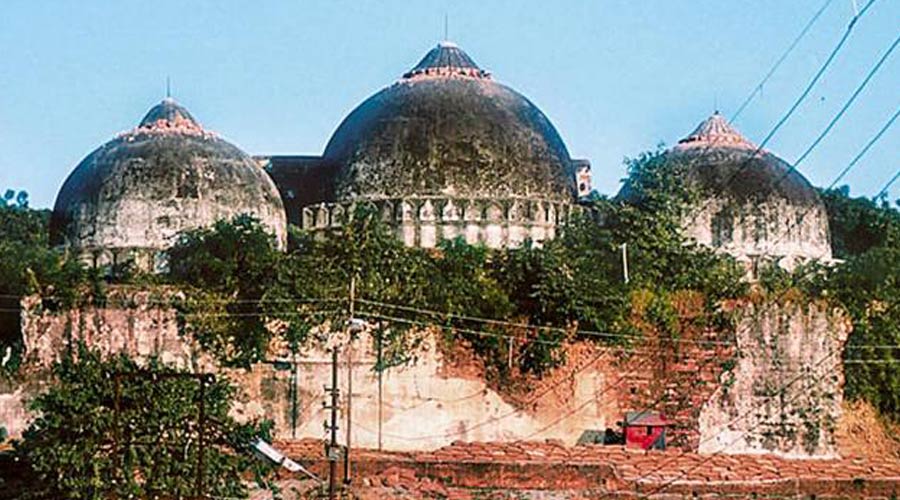The Centre on Monday obtained from the Supreme Court a fourth consecutive adjournment on the hearing of a batch of petitions challenging a 1991 law that prohibits changing the status of any place of worship except for the Babri Masjid-Ram temple in Ayodhya.
The apex court, however, assured Muslim organisations that it would examine their preliminary objections to the maintainability of the public interest litigations challenging the Places of Worship Act, 1991.
The 1991 act is a hurdle to Sangh parivar demands to have mosques removed from premises shared with the Kashi Vishwanath Temple in Varanasi and the Krishna Janmasthan Temple in Mathura. Hindutva groups have petitioned several courts with this demand, making the Ayodhya-style argument that the mosques had been built after demolishing Hindu shrines.
While BJP politicians have openly questioned the 1991 law and supported the demand for the mosques’ relocation in the run-up to the 2024 general election, the central government has delayed taking a stand in court by seeking serial adjournments.
On Monday, the apex court granted solicitor-general Tushar Mehta time till end-February to enable the Centre to state its position. The previous adjournments were granted on September 9, October 12 and November 14.
Chief Justice of India D.Y. Chandrachud, who headed the bench, assured senior advocate Kapil Sibal that the court would examine the “preliminary objections” raised by the All India Muslim Personal Law Board to the petitions.
Appearing for the board, Sibal argued that the PILs were not maintainable, being related not to any particular religious structure but to the 1991 law whose validity had been upheld by a five-judge constitution bench in the Ayodhya case.
“Such petitions cannot lie unless (they) relate to a particular structure. There cannot be a public interest litigation qua judgment of a court taking a view,” Sibal said.
But senior advocate Rakesh Dwivedi, appearing for main petitioner and BJP member Ashwini Upadhyaya, said the challenge was maintainable as the petitioners had challenged the validity of the entire act and were not concerned with certain observations made by the five-judge bench that were not binding on the petitioners or others.
Senior advocate Vrinda Grover, appearing for the Jamiat-Ulema-i-Hind, complained that despite repeated directions the Centre had so far failed to file an affidavit although the issue concerned a central legislation.
She said that while the matter was before the top court, controversies had arisen over the Gyanvapi mosque in Varanasi and the Idgah mosque in Mathura, “which are in direct breach of the restraints imposed in the 1991 statute”.
The Jamiat has argued that quashing the 1991 law would “open the floodgates of litigation against countless mosques” and widen “the religious divide from which the country is recovering in the aftermath of the Ayodhya dispute”.
The then Congress-led government of P.V. Narasimha Rao had enacted the 1991 law against the backdrop of an intensified campaign for a Ram temple at the site where the Babri Masjid stood in Ayodhya.
The act says the character of a place of public worship shall remain as it existed on August 15, 1947, except for the structures on the Ram Janmabhoomi-Babri Masjid land, which was under litigation at the time.










